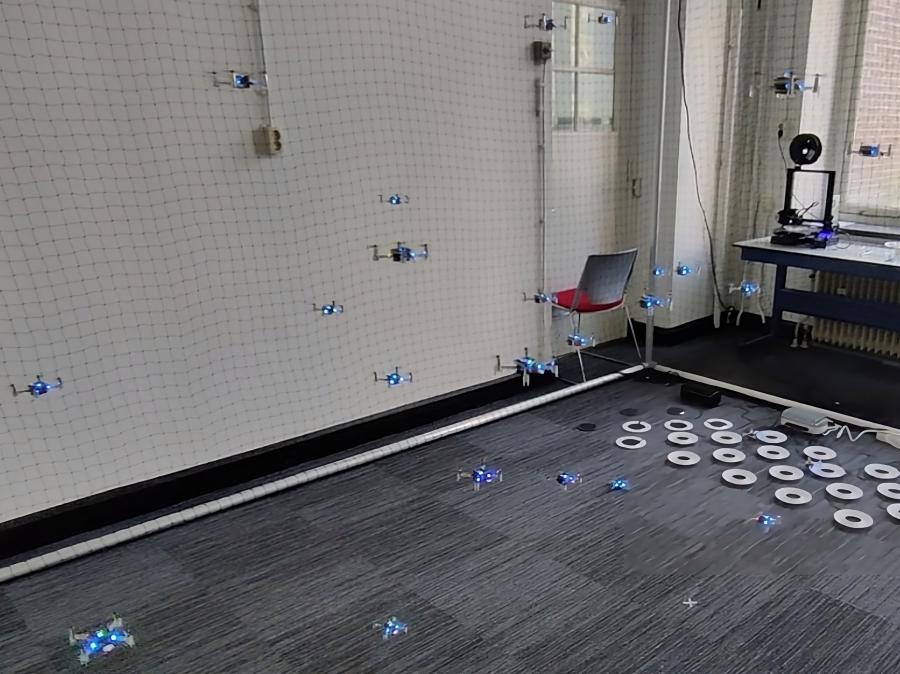MSc thesis project proposal
Distributed formation control of swarms
Drones have revolutionized various aspects of human society, enhancing productivity and enabling new applications. While single-drone systems have proven useful in applications such as wildlife monitoring and city photogrammetry, the concept of drone swarms opens up even more possibilities. This thesis project focuses on a specific type of swarm known as a formation of drones, which can offer significant benefits and fulfill specific requirements for various tasks.
Objective: The objective of this thesis project is to address the challenges associated with geometrically constrained drone swarms. These challenges exist at different levels, including lower-level control of drones using consensus protocols under resource constraints, noise, and disturbances, as well as higher-level design of swarm geometry to optimize sensing and learning capabilities from a signal processing perspective.
The project provides an opportunity to design, implement and validate your algorithm on a drone swarm platform. See image.
[1] Li, Zhonggang, and Raj Thilak Rajan. "Geometry-Aware Distributed Kalman Filtering for Affine Formation Control under Observation Losses." In 2023 26th International Conference on Information Fusion (FUSION), pp. 1-7. IEEE, 2023.
[2] Van Der Marel, Martijn, and Raj Thilak Rajan. "Distributed kalman filters for relative formation control of multi-agent systems." In 2022 30th European Signal Processing Conference (EUSIPCO), pp. 1422-1426. IEEE, 2022.
Requirements
We are seeking a self-motivated student with a strong background in linear algebra and statistical signal processing. An ideal candidate should also possess a keen interest and relevant experience in distributed/array signal processing or drone programming with ROS/C++. Proficiency in advanced coding skills, specifically in MATLAB or Python, is essential. Furthermore, excellent written and verbal communication skills in English are mandatory. The expected duration of the project is approximately 9-12 months.
Contact
dr. Raj Thilak Rajan
Signal Processing Systems Group
Department of Microelectronics
Last modified: 2023-08-29
